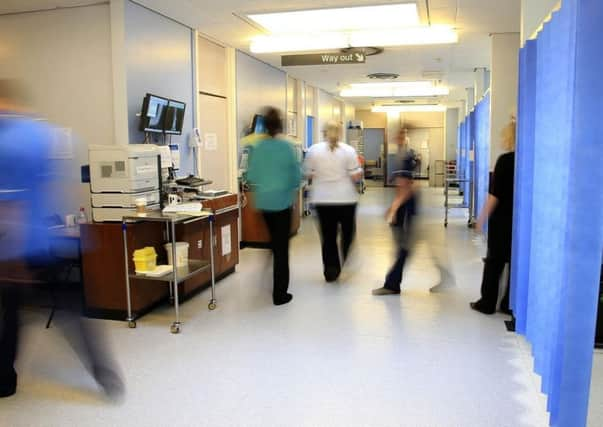NHS deficit reaches £1.2bn as service is '˜pushed to its limit'


At the end of December the deficit among organisations providing NHS services in England was £365m worse than planned.
The deteriorating position was revealed in a quarterly report released by NHS Improvement which also showed there were 100,000 staff vacancies across NHS acute, ambulance and mental health trusts.
Advertisement
Hide AdAdvertisement
Hide AdThe regulator said A&E departments dealt with record numbers of patients between October and December. Some 5.6m people visited A&E over the three-month period, a quarter-of-a-million more than the same period last year.
The forecast for the end-of-year financial position among NHS trusts is now £931m, some £435m worse than planned, the regulator said. It follows warnings from NHS Providers, which represents NHS trusts, that hospitals have been set unrealistic targets to meet strict budget totals by the end of the financial year.
Saffron Cordery, director of policy and strategy at NHS Providers, said: “These figures show how the NHS has been pushed to the limit.
“Despite working at full stretch with around 100,000 vacancies and a real risk of staff burnout, and despite treating six per cent more emergency patients year on year in December, trusts can not close the gap between what they are being asked to deliver and the funding available.
Advertisement
Hide AdAdvertisement
Hide Ad“There is an increasing feeling amongst frontline trust leaders of ‘we cannot carry on like this’.
“The NHS has shown extraordinary resilience in sustaining performance in the midst of an unprecedented financial squeeze.
“We have managed to keep the show on the road. But the warning signs are now clear and in plain sight. The time to act is now.”
On Saturday, the Yorkshire Post revealed that hospitals in the region were struggling with multli-million pound deficits. Trusts in Yorkshire and Humber were around £150m in the red, latest information showed, and fears were raised that the shortfall could rise higher.
Advertisement
Hide AdAdvertisement
Hide AdNHS Improvement said the majority of the financial decline in the current year came from a small number of trusts with larger than expected deficits.
A Department of Health and Social Care spokesperson said: “Despite the challenging winter months, the NHS has cared for record numbers of patients and fewer NHS trusts are expected to be in deficit at the end of this financial year.
“Whilst the NHS was prioritised in the recent Budget with an extra £2.8bn for the next two years, NHS trusts must now tighten their grip on finances.”
Warnings have also been made that mental health trusts in England have less money in real terms than they did in 2012.
Advertisement
Hide AdAdvertisement
Hide AdThe Royal College of Psychiatrists said it was “unacceptable” that spend was lower once inflation is taken into account.
It said that 34 of 55 of mental health trusts in England reported lower operating income in real terms in 2016-17 compared to 2011-12.
But NHS England said the research “ignores the fundamental fact that many of the trusts it references provide both mental health and community services entirely unrelated to mental health. So changes in the trusts’ total income tells us nothing about their mental health revenues specifically.”